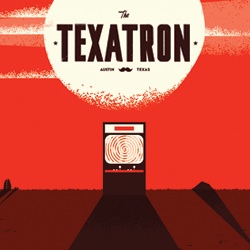RAGDOLL METAPHYSICS: WHY REAL TIME STRATEGY IS THE GENRE OF THE YEAR
Suddenly, almost out of nowhere, real-time strategy was the most important genre in the games store. Over there a Halo Wars placard, behind me the launch rack filled with the localised embossing of Empire: Total War (above), and on the shelf next to where a pretty girl has been looking bored: a copy of Pikmin Wii.
When I get back to the office I’ll be interviewing the lead designer of World In Conflict – which is being relaunched for the Ubisoft ownership – and then I’ll probably play some more of minor Russian epic, Men Of War. Or perhaps I’ll get on with messing around in the Battleforge beta – EA’s mix of card-gaming and real-time fantasy warfare.
Sure, there’s PC bias to all this, but there are copies of Red Alert 3 and EndWar sat amid the stack of green plastic atop my busy little 360 too. The real-time strategy is reaching out into every platform, and into the collection of every gamer. The avalanche of RTS games that began before Christmas seems to be picking up momentum as we enter 2009: they’re exploding out of every orifice in the games industry.
And you don’t need to give a damn about base-building or resource management to be enticed, either: strategy is more action than ever, and the top slots of the charts are there to prove it. The last couple of weeks have been dominated by everyone I know playing Relic’s maximalist squad combat offering, Dawn Of War II. Can a third person combat game really call itself real-time strategy? Yes, it really can. But it’s also very close to being Diablo-with-squads. There’s no denying it: strategy is now as much about the fluidity of moment-to-moment violence as a hack ‘n’ slash.
So what is going on? Since when did ordering tiny men to their deaths become the hottest thing in gaming? I suspect it’s a McLuhanesque ratio of the senses thing. It’s a ratio of the genres. Every so often the ratio shifts, and one of the genres becomes the focus of design evolution, and gets all the ideas in one place.
That means it also becomes the focus of gamer attention, and our collective consciousness becomes more geared towards a particular style of play. We’re just in a real-time strategy place right now, and we will be until the ration shifts. This year has been the time for real-time strategies to mature, and present their new wave of ideas. They are in the ascendent, and they’re pouring into our global gamer consciousness like hot-keyed ants.
Notice, though, that with the exception of Halo Wars – which hearkens from a franchise I suspect most gamers have heard of – most of these games are sequels of some form or another. This, I suspect, is the reason for their proliferation and their apparent success. The work of many companies, spanning many years, is all colliding with 2009. The sudden surge of real-time strategy games, and the apparent success of so many of them, is a concrete example of what Ed Stern was talking about in the last Ragdoll Metaphysics: the importance of eschewing originality, and building on familiar tropes. The real-time strategy storm of 2009 is a matter of evolution, rather than innovation.
The games I’m playing right now are all examples of building on previous successes. Men of War, the brilliant Russian World War II game, has iterated several times, via Faces Of War, and Heroes Of World War II, and brings us a game where direct control of units and destructible environments combine to create a brutal, enthralling battlefield experience. The latest tier of technology enables it to take a few more steps towards verisimilitude, and a few more steps into the simulation of a battlefield.
World In Conflict is another clear descendent of previous generations. Relaunching for 2009 and their new publisher, WiC represents a direct sequel to the first of the 3D base-free tactical games, Ground Control. Its parachuting reinforcements, free camera, and tactical teamplay, are all found in embryonic form in the Ground Control games – the previous work of Swedish studio Massive Entertainment.
Dawn Of War II treads a similar path: attempting to articulate its Warhammer 40K heritage, while at the same time recombining its genetics with those of World Of Warcraft: loot, experience, XP, inventories. The crucial thing to realise is that these games are great, without being particularly original. Nothing in Dawn Of War is entirely new or particularly original, and yet it is all brilliant. It is a matter of recombining what worked before, into something better.
Empire: Total War is probably the most acute example of this. Of course only one half of a Total War game is actually real-time (the other being a turn-based campaign map), but the lesson is no less true. Each iteration of the Total War series (perhaps with the exception of Medieval II) has been a sculpture into which more detail has been carved. The form, the subject, is always very similar, but proficiency of the rendering is vastly improved. Empire‘s sea and land battles reflect both the leap of technical proficiency made by the designers, and the tactical innovation of the era they are intending to portray – the 18th century. The model of combat demands more from the tactical brain of their players, while never deviating from the original blueprint.
(And perhaps gaming generally can be seen as a sculptural medium: each iteration in a series is chipping away at the same kind of block, with the same flaws and grains defining how the final piece will look. And yet as the years progress the hand of the sculptor becomes steadier, and his tools become more refined. Games are, each time they are unveiled, revealing more detail. My comrade in game criticism John Walker adds: “The adventure game would be the example that was carved to perfection in the 90s, but then people kept chipping away at it, trying to make it better, leaving something fragile and meaningless.”)
I digress. My point is that 2009 might well benefit from a lack of originality. Empire could be Game Of The Year, and yet it is just a feature-creeped version of a previous masterpiece. If real-time strategy is going to dominate 2009 – as it looks set to – then it will do so not because of incredible inventiveness, but because of solid competence and an understand of what worked in the past.
Hell, the list of real-time proliferation hasn’t even begun to run dry, either: Gas Powered’s hero-RTS Demigod beta (left) is currently in progress – a game that is directly inspired by Warcraft 3 supermod Defense Of The Ancients. The Company Of Heroes expansion is about to arrive, much to the joy of chomping Relic fans, and later this year we’ll be seeing the Sequel Daddy of strategy come home: Starcraft 2.
Blizzard’s multi-chapter sci-fi monstrosity is going to land in a hurricane of hyperbole (I’d rumour the release date if I thought I could get away with it), but it’s probably the safe to say that it’s going to be fairly popular, and effortlessly playable. This will be nothing to do with innovation, and everything to do with lessons learned, and an original success evolved. Blizzard’s big game for the year epitomises everything else that’s going on in the most important genre of 2009.
Finally, well, this is probably going to be rubbish, but did anyone miss the video for Stalin Vs Martians? The only original RTS idea this year, and it looks terrible… We’ll pick up this theme again in the next column, when I talk to Darwinia-creators, Introversion.
[Jim Rossignol is an editor at RockPaperShotgun.com and the author of This Gaming Life, an account of the life of modern videogames and some of the people who play them. Ragdoll Metaphysics is his Offworld column exploring and analyzing gaming’s vast world of esoterica.]
Previously:
Ragdoll Metaphysics: Quake Wars designer Ed Stern on Blind Luck …
Ragdoll Metaphysics: Good Grief, The Victory Of Eve's Space Goons …
Ragdoll Metaphysics: Memories of 2003, or Why We Need Planetside …
Ragdoll Metaphysics: Soap Opera & The Sims – Offworld
Ragdoll Metaphysics: 2008 And The Indie Renaissance – Offworld
Ragdoll Metaphysics: Ten Things That Made Me Glad To Be A Gamer In …
Ragdoll Metaphysics: Left 4 Dead, The Thinking Man’s Braindead Shooter – Offworld
See more posts about: Offworld Originals, Ragdoll Metaphysics






